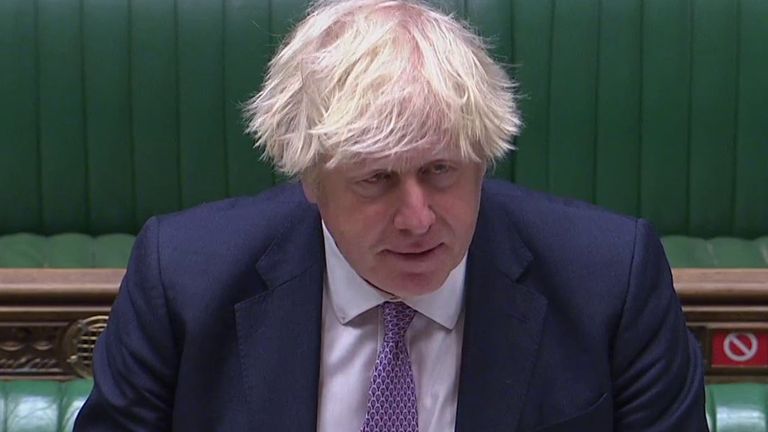Boris Johnson has seen off a Conservative rebellion over his plan to cut the UK’s foreign aid spending.
MPs voted 333 to 298, a majority of 35, to back reducing overseas aid spending from 0.7% of gross national income to 0.5%.
Ministers have insisted the cut – which will see a reduction of around £4.4bn – is a “temporary” move amid high government spending caused by the COVID-19 pandemic.
Addressing the Commons earlier, the prime minister said the country’s public finances are under a “greater strain than ever before in peacetime history”.
“Every pound we spend on aid has to be borrowed and, in fact, represents not our money but money that we’re taking from future generations,” he told MPs.
But the decision has provoked fierce opposition.
A sizable number of Tory MPs have spoken out against the cut, which is written into law and was contained in the Conservative manifesto at the 2019 general election.
Former prime minister Theresa May said she would rebel against the Conservative whip for the first time, accusing the government of breaking its promise “to the poorest people in the world”.
“This isn’t about palaces for dictators and vanity projects, it’s about what cuts to funding mean – that fewer girls will be educated, more girls and boys will become slaves, more children will go hungry and more of the poorest people in the world will die,” she said.
David Davis, a former Brexit secretary, told the debate: “I consider myself an economic Thatcherite and yet when I come to choose between money and lives, I always choose lives.
“So, this House should remember that what should be at the forefront of every member’s mind today is this is a vote where we are choosing whether or not to intervene to save lives.”
Ahead of Tuesday’s vote, Chancellor Rishi Sunak set out the conditions under which the foreign aid budget will return to the long-held 0.7% promise.
These are when the independent Office for Budget Responsibility judges that the government is not borrowing for day-to-day spending; and that underlying debt is falling.
However, a number of MPs said the conditions laid about by the chancellor would not see aid spending return to 0.7% for some time to come.

